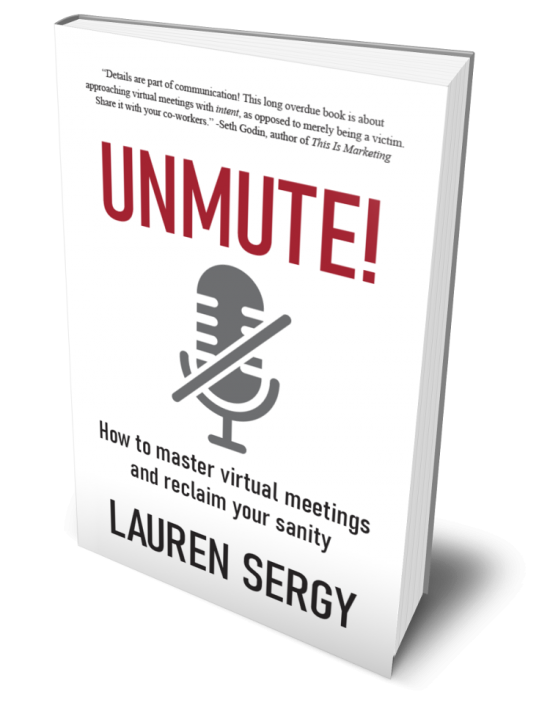You’re going to be speaking at an event – congratulations! Now comes the awkward, nail-biting task of writing your speaker’s bio so that you can be properly introduced. But what to put in the bio? How do you highlight your skills without sounding like you’re bragging or have an over-inflated ego?
I know I’ve felt this angst myself, and so many people have asked me about writing their bio. Mike wrote in and summed up the problem perfectly in his question:
“Hi Lauren, I’ve been invited to speak at an association event (congratulations, Mike!). The organizers have asked for my speaker’s introduction and bio. What should I put into this? Every time I try to write something, it sounds cheesy or made-up. I don’t even know how long it should be! Any help would be appreciated. Yours, Mike”
I love this question, Mike, because it brings up something that’s tricky for a lot of us – talking about how awesome we are without feeling gross!
So get ready to up your confidence, take pride in your accomplishments, and put your best food forward when you take your place in front of your audience:
(Embedded video being fussy? Click here to watch it on YouTube)
What accomplishment would you be most proud to share in your speaker’s bio? Share it in the comments below or drop it my way @lsergy on Twitter
Remember to like the video, subscribe to my channel, and share this post with your colleagues so that they, too, can create speaker bios they feel good about!
TRANSCRIPT
Welcome to Communication Q&A, where I take your tough speaking and communication questions and dish out a bit of advice to help you through them. Today we’ve got Mike writing in with a question about his speaker’s bio.
“Hi Lauren, I’ve been invited to speak at an association event (congratulations, Mike!). The organizers have asked for my speaker’s introduction and bio. What should I put into this? Every time I try to write something, it sounds cheesy or made-up. I don’t even know how long it should be! Any help would be appreciated. Yours, Mike”
I love this question, Mike, because it brings up something that’s tricky for a lot of us – talking about how awesome we are without feeling gross!
There’s a couple of reasons why something that should be as simple as writing your speaker’s bio can actually be very difficult.
First, it’s sometimes hard for us to appreciate our own skills and accomplishments because we’re viewing them through our own internal lens, and they don’t always seem all that impressive to us. It’s that adage of us being our own worst critics.
Second, we don’t want to come across as if we’re bragging or arrogant. So our reaction is to downplay a lot of what we’ve done to keep ourselves humble.
But the thing is, Mike, neither of these help your audience.
A speaker’s bio is a critical piece of information for them – it’s what tells them who you are and why you’re the RIGHT person to be speaking to them about your topic!
It helps establish your credibility even before you open your mouth to speak, which is important for making a good first impression and boosting your persuasiveness.
When you’re writing your bio, you want to focus in on how the audience perceives you, rather than how you perceive yourself. What parts of your experience would be most important to them? How did you come to be an expert on this topic (and if you’re the speaker, you’re the expert – whether you like it or not!)? What would make the audience sit up and say “wow, that’s really impressive!”
For most talks, it’s going to come down to these details:
1: Your name and title or what you do
2: How many years of experience you have (this could be years of experience in your field, or with the topic you’re speaking about)
3: What sort of people you work with or clients you’ve had (you might say that you work with certain fortune 500 companies, or you could describe the types of clients your typically help)
4: Significant accomplishments, such as honours or awards, books you’ve written, media appearances you’ve had, or major projects you’ve worked on.
Keep the details short and always make sure they’re relevant to the audience and the topic. For example, let’s say that you’re a policy analyst specializing in zoning regulations, and you’re speaking to an engineers’ association. You’ll definitely want to tell them about your Master’s degree in governmental policy, but maybe leave out that Bachelor of Arts in Theatre Design or the fact that you’re a certified yoga instructor. On the other hand, if you were speaking to an association of art educators, the theatre degree and yoga instruction might suddenly become relevant again. Always ask yourself: will the audience see this as adding to my credibility? Will it help them understand my views better? Will they care?
If you’re really stuck, ask your friends what THEY would put in your speaker’s bio, and run your bio past them for feedback. That can help you get that outsider’s perspective you need.
Best wishes for your talk, Mike, and take pride in all the great things that make it into your speaker’s bio!
And now it’s over to you – if you were writing your speaker’s bio, what would you be most proud to put in? Share your comments down below.
And as always, please like this video and subscribe to this channel – it helps others find this video and gives me some warm fuzzies as well. And of course if you haven’t already, make sure to visit laurensergy.com and sign up for speaking tips like this sent straight to your inbox.
Thanks for watching – see you on the next Communication Q&A!







Thank you Lauren, that was very helpful.
(coincidently my name is Mike as well).